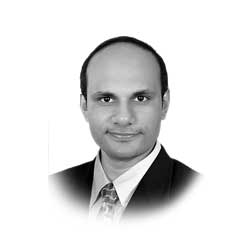By: Muhammad Omar Iftikhar
The basis of development and growth is research. A society’s rational, emotional and social foundation is elevated because of the research conducted at its educational and research institutes. Educational institutes – schools, colleges and universities – indeed provide students with the necessary acumen to enhance their mental horizon and fine-tune their cognitive skills. Research, on the other hand, adds value to the information one acquires through education. Research is of paramount significance for higher learning. It provides students with answers to questions that are no less than daunting. Questions that relate to finding cures to illnesses, that discover ways to enhance agriculture and that create avenues for industrial growth.
Research has been part of man’s inquisitiveness. It has helped humans to understand the complexities of life and provide solutions to life’s many problems.
Research students, therefore, provide society with the gift of knowledge and awareness. Such students unlearn and learn – key steps to acquire learning. While education until the graduate and post-graduate level are indispensable, research conducted during MPhil and Ph.D. level becomes closer to reality.
Research has been part of man’s inquisitiveness. It has helped humans to understand the complexities of life and provide solutions to life’s many problems. Muslim scientists, in particular, have played a pivotal role by researching in their respective fields. Scientists and men of learning including Jabir Ibn Haiyan, Omar Khayyam, Muhammad ibn Musa Al-Khwarizmi, Ibn Ishaq Al-Kindi, Ibn Khaldun, Abu Nasr Al-Farabi, Ibn Sina and others contemplated over questions and deliberated upon the “whats”, “ifs” and “hows” of a problem. Their trials, errors and experimentation to find solutions to problems and discover new ways to complete tasks in the fields of chemistry, music, astronomy, geography, nature, algebra, medicine and others have led them to achieve an exemplary status in history. They worked upon their hypothesis at a time when manual labour was tedious and research meant to travel across cities and countries. Such scholars indeed have paved the way for their future generations to carry out their research.
Furthermore, such scientists from yesteryear had the passion to follow their ideas. It was their thirst for knowledge and the quest for solutions that made them avid learners, readers, researchers and scholars. Had there been no passion for finding solutions, Al-Biruni could have never discovered the radius and circumference of the Earth. Similarly, Ibn al-Nafis presented how blood circulates in the human body while Jabir ibn Hayyan pondered upon the distillation process. Without the enthusiasm for finding answers Al Zahrawi, also known as the father of Surgery, could have never invented surgical instruments While Ibn Sina discovered medicine, Al-Battani calculated the length of a solar year and Ibn Sahl presented to the world a variety of lenses. Such feats of medical and engineering wonders were made possible only because of the magnitude of research these scientists conducted. One wonders the painstaking methods they would have had to follow to gather data, find facts and to use their experience and knowledge to present solutions when there was no mechanical and technological aid available.
The efforts of the Muslims scientists, therefore, led the foundation of modern physics, chemistry, astronomy and among other disciplines. The findings of Muslim scientists were used, followed, adapted and considered as a reference by Johannes Kepler, Nicolaus Copernicus, Rene Descartes, Robert Boyle, Isaac Newton, Henry Biggs, Albert Einstein and others. The culmination of this research led to the industrial revolution. The sectors of education, health, and the services industry were revolutionized because of research.
Professionals today enter into the Ph.D. track to acquire higher learning. Pakistan has universities providing degrees in various disciplines and offering students the opportunity to pursue their Ph.D. in a subject of their choosing. The concerned authorities, therefore, must create a worthwhile system where the research studies, papers, and findings are transferred to the common man. Certain provisions must be instigated to make research papers part of the syllabus for MBA programs in business management institutes. This will provide students while pursuing their studies with a deeper understanding and insights while assisting those who envision pursuing their Ph.D.
The writer is a columnist, author and an independent researcher. He can be reached at [email protected]
